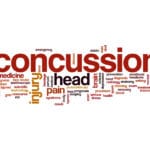Flexeril (cyclobenzaprine) is a commonly prescribed muscle relaxant used to treat muscle spasms and pain. While effective for short-term relief, questions often arise about its potential for addiction. This comprehensive guide delves into the complexities of Flexeril dependence, exploring the risks, withdrawal symptoms, treatment options, and preventative measures.
Understanding Flexeril Dependence
Flexeril is not physically addictive in the same way as opioids, but it can lead to psychological dependence. This means your mind, rather than your body, craves the drug, making it difficult to stop even if the original physical issue has resolved. This psychological dependence is a real concern, and understanding its nuances is crucial. Is trazodone a narcotic? Learn more about the addictive potential of other medications.
What is Psychological Dependence?
Psychological dependence develops when you begin to feel like you need Flexeril to function, even if the initial reason for its prescription is no longer present. This mental or emotional reliance can make stopping challenging, often leading to uncomfortable withdrawal symptoms that perpetuate the cycle of dependence.
Recognizing the Red Flags
Several warning signs may indicate developing Flexeril dependence:
- Increased Dosage: Taking more Flexeril than prescribed is a major red flag.
- Combining with Other Substances: Mixing Flexeril with alcohol or other central nervous system depressants is extremely dangerous and can have serious health consequences.
- Negative Consequences: Continuing Flexeril use despite experiencing relationship problems, job loss, or financial difficulties suggests a dependence issue.
- Cravings and Withdrawal: Experiencing strong cravings for Flexeril and withdrawal symptoms like headaches, nausea, or malaise when attempting to stop are strong indicators of a problem.
The Dangers of Flexeril Misuse
While a Flexeril overdose on its own is rare, combining it with alcohol or other substances significantly increases the risk of serious complications, including breathing difficulties, seizures, coma, and even death. Extended misuse can also lead to persistent gastrointestinal problems and strained relationships. For those struggling with back pain, finding the right specialist is essential. Consider looking into trusted professionals like those at iSpine Maple Grove.
Navigating Withdrawal
Abruptly stopping Flexeril, particularly after prolonged use, can trigger a range of uncomfortable withdrawal symptoms, including headaches, malaise, and nausea. While these symptoms are generally not life-threatening, they can be intense enough to make someone relapse. It is crucial to seek professional medical advice for safe discontinuation strategies.
Pathways to Recovery
Several effective treatment options are available for Flexeril dependence:
| Treatment Option | Description |
|---|---|
| Inpatient Rehab | Provides intensive 24/7 care in a structured environment, removing individuals from their usual triggers. |
| Outpatient Rehab | Allows individuals to live at home while attending therapy sessions, offering flexibility and integration with daily life. |
| Support Groups | Peer-led groups, such as 12-step programs, offer a sense of community and shared understanding, providing valuable support during recovery. |
| Dual Diagnosis Treatment | Addresses co-occurring mental health disorders alongside addiction, recognizing the frequent interplay between these conditions. |
Many facilities offer insurance coverage and other financial assistance options. Recovery is attainable with the right support and resources.
Preventing Flexeril Dependence
Responsible use is key to preventing dependence. Always adhere to prescribed dosages and treatment durations. Never combine Flexeril with other substances, especially alcohol or other central nervous system depressants. Educate yourself about the potential risks, and seek professional help promptly if you notice any warning signs.
Flexeril for Daily Use: Is It Safe?
Flexeril is designed for short-term use (2-3 weeks) for acute muscle spasms associated with injuries. Daily use beyond this period is generally not recommended due to potential side effects, lack of long-term safety data, and the risk of developing tolerance and dependence.
Extended daily Flexeril use can lead to increased risk of side effects, including drowsiness, dry mouth, dizziness, headaches, and difficulty urinating. While Flexeril is not physically addictive like opioids, abruptly stopping after prolonged use can cause withdrawal-like symptoms. Tapering off the dose under medical supervision is essential.
For persistent pain lasting longer than the recommended Flexeril duration, consult your doctor for alternative pain management strategies, including physical therapy, lifestyle changes, or other medications.
Is Flexeril a Narcotic?
Flexeril is a muscle relaxant, not a narcotic (opioid). It works by affecting the central nervous system to reduce muscle spasms, unlike narcotics, which interact with opioid receptors in the brain. While both may provide pain relief, they have distinct mechanisms of action and risk profiles. Flexeril carries a risk of psychological dependence, especially with long-term use. Combining Flexeril with alcohol or other CNS depressants can be dangerous, intensifying side effects and increasing the risk of overdose.
Which Muscle Relaxer is Most Addictive?
Determining the “most addictive” muscle relaxer is complex, as individual responses vary. However, some muscle relaxers, including Flexeril and Soma (carisoprodol), are more prone to misuse and dependence due to their effects on the central nervous system. Prolonged use can lead to tolerance and withdrawal symptoms. Misuse, especially when combined with other substances, can result in severe side effects like heart problems, seizures, and respiratory depression. Treatment options for muscle relaxer misuse are available, and prevention through responsible use, proper prescribing practices, and alternative pain management strategies is crucial.
This article aims to provide comprehensive information about Flexeril dependence. It is essential to consult with your healthcare provider for personalized advice and treatment.
- Revolution Space: Disruptive Ion Propulsion Transforming Satellites - April 24, 2025
- Race Through Space: Fun Family Game for Kids - April 24, 2025
- Unlocking the Universe: reading about stars 6th grade Guide - April 24, 2025
















